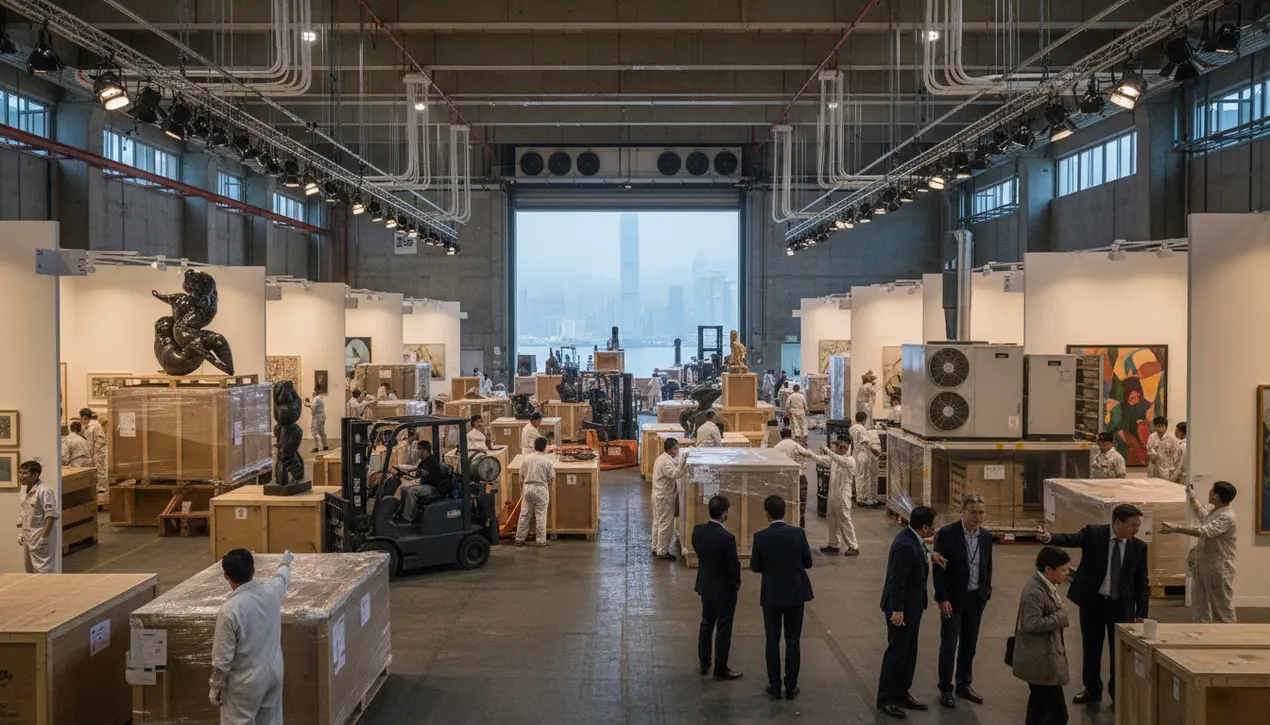
Entertainmenttheatre & artsArt Auctions
Hong Kong's Art Market Competitiveness Challenged by Infrastructure Gaps.
AN
Andrew Blake
1 day ago7 min read7 comments
The recent Art Business Conference in Hong Kong served up a stark reality check, cutting through the usual boosterism to spotlight a critical juncture for the city's cultural ambitions. While the government has long leaned on its famous zero-tax policy for art imports as a primary lure for international galleries and auction houses, a consensus is emerging that this financial carrot is no longer enough to maintain a competitive edge in a rapidly evolving global art scene.The conversation has decisively shifted from fiscal perks to foundational gaps—specifically, a pressing shortage of adequate storage, logistics, and exhibition infrastructure capable of handling the sheer volume and value of art now flowing through the region. This isn't just about having more warehouse space; it's about creating a fully integrated ecosystem with state-of-the-art, climate-controlled facilities, specialized art handling services that rival those in Basel or New York, and seamless customs processes that don't frustrate collectors and institutions.The core challenge, as experts framed it, is that Hong Kong risks becoming a victim of its own success, having brilliantly established itself as a premier sales hub and gateway to mainland China's booming collector base, but now failing to build out the necessary backbone to support that status long-term. We've seen this story play out before in other global hubs where initial advantages were squandered by infrastructural complacency.Consider the lessons from London, where decades of dominance in the European market are now being tested by post-Brexit logistical nightmares and rising costs, or how Singapore has been aggressively investing in its own cultural infrastructure, from the National Gallery Singapore to expanded freeport facilities, explicitly to capture market share. The stakes for Hong Kong are immense, extending far beyond the art world into its broader identity as a global financial and cultural nexus.A failure to address these structural deficiencies could see major international galleries reconsider their regional headquarters, push biennials and major art fairs to more accommodating cities like Seoul or Tokyo, and ultimately diminish the city's soft power. The solution will require a coordinated, long-term vision that marries private investment with proactive public policy, moving beyond short-term tax breaks to commit to building the physical and logistical platforms that will allow Hong Kong's art market not just to survive, but to truly thrive for the next generation.
#editorial picks news
#Hong Kong
#art market
#infrastructure
#tax incentives
#Art Business Conference
#global competition
Stay Informed. Act Smarter.
Get weekly highlights, major headlines, and expert insights — then put your knowledge to work in our live prediction markets.
Comments
Loading comments...
© 2025 Outpoll Service LTD. All rights reserved.